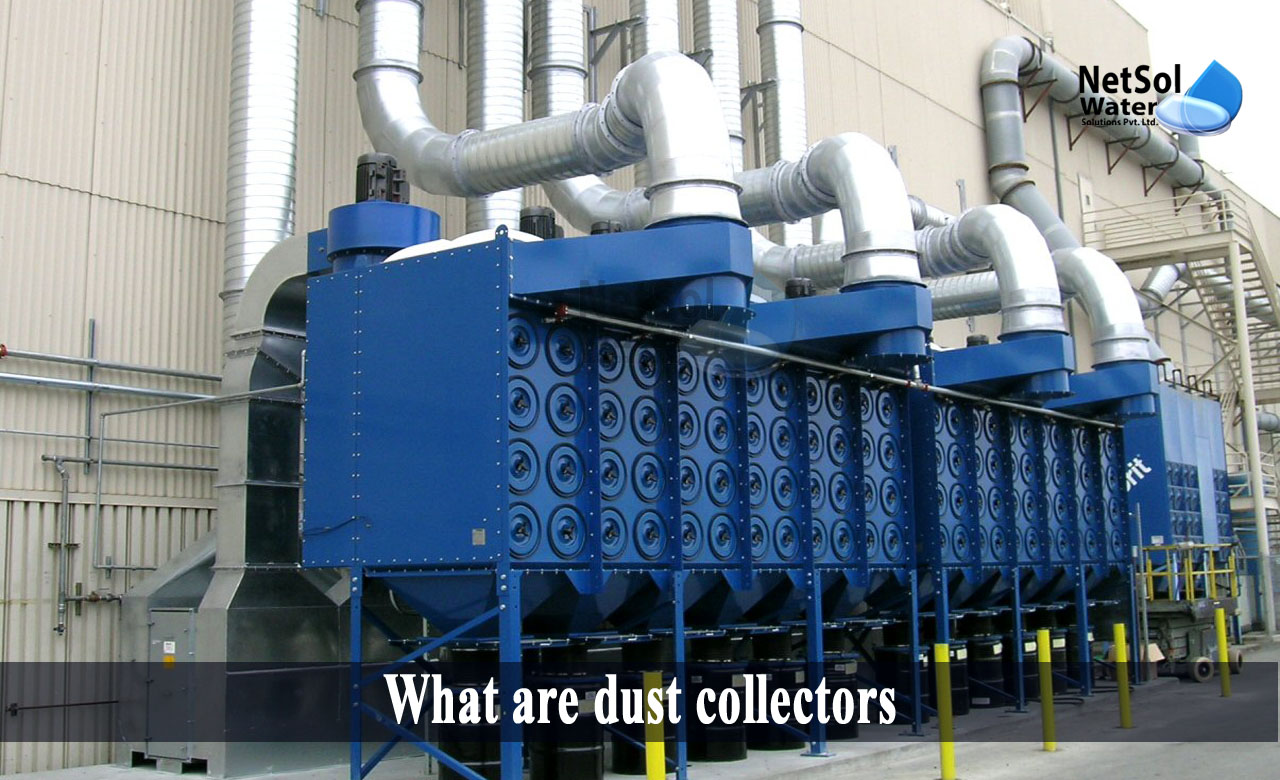What are dust collectors?
It is a system that collects dust and other contaminants, from the air or gas. These are used to improve the quality of air, emitted by industrial as well as commercial processes. It is a form of air pollution control technology used to meet environmental, and occupational safety regulations in factories, plants, warehouses, and other industrial or commercial settings.
Industrial dust collectors, also known as filter receivers, are critical components of many heat and size reduction applications, as well as pneumatic conveying receivers.
What is the aim of dust collectors?
During production and manufacturing, effective dust collecting systems manage, minimize, and eliminate potentially dangerous particulate matter and fumes, from gases from a manufacturing process or the air and surrounding environment.
To improve air quality, the equipment’s are specifically intended to purify, and filter dangerous dust and fine particle matter, introduced into the atmosphere.
Each design application has the same goal: to filter, separate, and trap dust and particle matter, before releasing cleaned air.
Can all types of industrial pollutants be controlled by dust collectors?
Pollutant types might vary per industry. As a result, the designs of industrial dust collectors are tailored to the extraction method, required by each industry.
In general, dust collector systems work by pulling dust and particles from the air and passing them through a filter, which catches and separates the matter before discharging cleansed air back, into the workplace or environment.
What are the basic components of Dust Collectors?
Dust collectors have components which include:
1. a blower,
2. a dust filter,
3. a collector,
4. filtration system,
5. dust receptacle,
6. a dust-removal method.
What are the types of dust collectors?
Fabric filter baghouses, inertial separators (similar to mechanical cyclones), cartridge collectors, wet scrubbers, and electrostatic precipitators, are the five most popular types of dust collection equipment.
Baghouse dust collectors are available in a variety of configurations and are the most often utilized technology, due to their 99% efficiency.
Application of Dust Collectors
Dust collection is essential in many industrial sectors, including woodworking, agriculture, food processing, pharmaceutical, recycling, cement and rock products, metal fabrication, mining, and chemical processing, to name a few.
How much do you need to spend on an industrial dust collector?
Before we install a dust collector, we ask our clients the following simple but critical questions:
• What exactly is the application?
The cost of the dust collector is affected by the application.
• What kind of dust do you have and is it flammable (explosive)?
If your dust is explosive, the cost of the machine will reflect this.
• What machine size is required?
Before selecting an appropriately sized machine, the needed airflow (in cubic feet per minute) must be estimated.
• How will the dust be collected?
A source capture filtration system, also known as a point of pollution filtration system, captures fumes and particles at the source, minimizing the quantity of fumes personnel breathe in, and preventing particles from spreading throughout your business.
An ambient air filtration system is centralized to service your complete business, and clean and reclean the air on a continuous basis.
• Where will the air be disposed of?
You can dispose of airflow to the outside of your facility or return it within.
Once you've answered these preliminary inquiries, we can assist you in selecting the best machine for your budgetary requirements.
Consider the following two essential elements that will affect your budget for installing an industrial dust collector.
EXTRA COSTS RELATED TO INDUSTRIAL DUST COLLECTION
You must also consider installation and maintenance costs when, calculating your genuine industrial dust collector budget. Let's look at what goes into these prices.
1. Installation fees.
It is not as simple as plugging in an industrial dust collector and letting it do its work.
2. Maintenance fees.
Depending on the type of industrial dust collector you have installed, you will need to replace the filters on a regular basis. The good news is that filters are relatively inexpensive, and do not require frequent replacement.
How can we assist?
Netsol Water provides service for dust collectors that require maintenance or retrofit. Our dedicated technical services section can repair or upgrade any make, model, or kind of industrial dust collector system.
Our expert team is well-equipped to assist you in selecting the best dust collection system for any application, enhancing the performance of filters and other machine elements.



